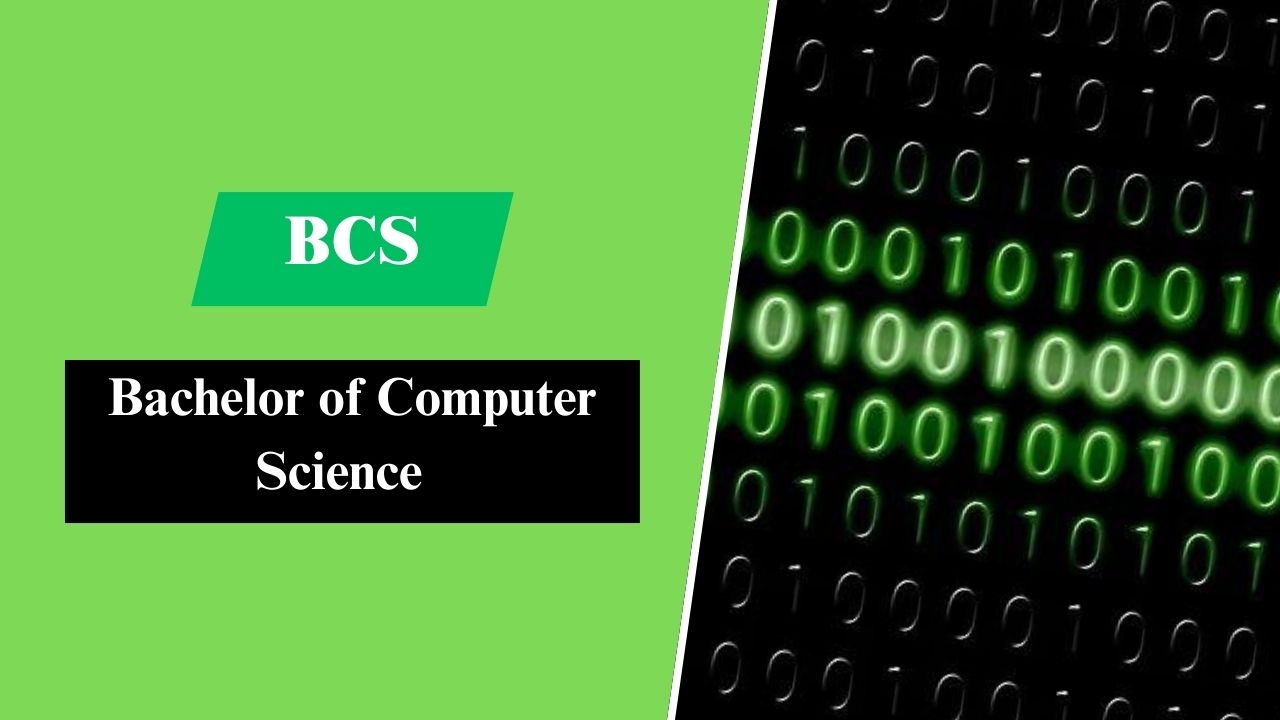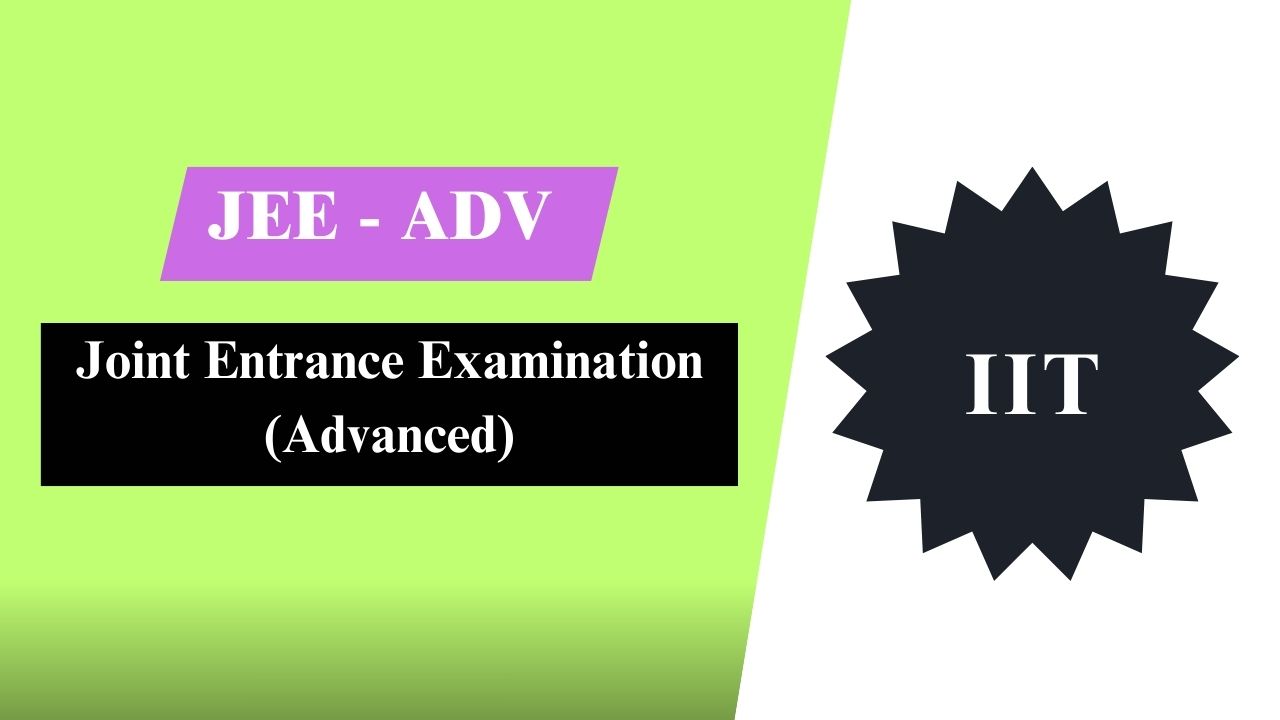What is BCS Degree? - Full Form, Course Detail, Salary, Job Opportunities and Eligibility

What is BCS Course?
The full form of BCS is Bachelor of Computer Science. It is a three-year undergraduate program offered for the study of computer science.
Computer science is a branch of science that focuses on the study of computers and related systems, including software, hardware, and algorithms.
The BCS course primarily focuses on the fundamental principles of computer science and application development. Under this course, students gain both theoretical and practical knowledge of computer programming languages, web development, operating systems (OS), algorithms, mathematics, databases, electronics, and more.
After completing BCS, candidates can work in various IT companies in roles such as software developer, system analyst, web developer, database administrator, IT consultant, network administrator, and cybersecurity expert.
BCS Course Summary
| Detail | Information |
|---|---|
| Course Name | BCS |
| BCS Full Form | Bachelor of Computer Science (BCS) |
| Field | Computer Science |
| Course Level | Undergraduate Course |
| BCS Duration | 3 years |
| Semesters | 6 Semesters |
| Course Type | Full-time |
| Overview | Provide students with a strong foundation in computer science principles, programming, and software development. |
| Career Options |
|
| Average Salary | 3 lakhs to 6 lakhs |
| BCS Recruiters |
|
| Higher Studies |
|
BCS Course Eligibility Criteria
- Educational Qualifications: Students required to have completed their 10+12 any board.
- Minimum Marks: Applicants must have secured minimum 50% to 60% marks in their class 12th examination.
- Academic Background: Applicants should have a background in Science with Mathematics have studied during their secondary education.
Skill Required for BCS Course
- Analytical Thinking: In Computer Science algorithms, data structures and programming tasks are quite challenging. This skill helps students understand problems and derive logical solutions.
- Mathematical Knowledge: A strong foundation in computing and algorithms in BCS is based on mathematics. Without math it is difficult to effectively handle the theoretical and practical aspects of computer science.
- Problem Solving Skill: In coding, debugging and software development, students often face complex challenges. Problem-solving skills help students effectively understand issues and derive logical solutions.
- Creativity: Innovative solutions and unique software designs require creative thinking to create new algorithms, find out of the box solutions for complex problems and design user-friendly interfaces.
- Logical Thinking: Logical thinking is the foundation of programming and algorithm development. It aids students in coding, debugging and designing. Without logical thinking it becomes challenging to identify coding errors and inefficiencies.
BCS Core Subjects
- C Programming
- Data Structures using C
- Database Management System
- Mathematics
- Electronics
- Object Oriented Concepts using C++
- Software Engineering
- Relational Database Management System
- Operating System
- Data Analytics
- Software Testing
- Web Technologies
- Computer Networking
- Java Programming
- Object-Oriented Software Engineering
- Advanced Java Programming
- Computer System Architecture
- Data Structures and Algorithms
- Practical Work (Semister wise)
BCS Career Options
- Web Developer/ Web Designer: A web developer or web designer works as a user interface designer, front-end developer and back-end developer to design and develop websites and web applications.
- Data Engineer: A data engineer designs, builds and maintains data pipelines and infrastructure using various technologies such as Hadoop, Spark, SQL databases and data warehousing solutions to store, process and analyze large datasets.
- System Analyst/ System Administrator: A system analyst or system administrator is responsible for analyzing and optimizing computer systems and processes to improve an organization's efficiency, reliability and performance.
- Data Analyst: A data analyst collects, cleans and organizes data to identify trends, patterns and correlations, using data analysis tools and software to extract useful insights and create meaningful reports and visualizations.
- Data Scientist: A data scientist analyzes and interprets large-scale data, identifies patterns and trends in the data, builds machine learning models and uses algorithms to clean, structure and organize data to extract accurate information.
- Hardware Engineer/ Hardware Designer: A hardware engineer designs, develops and tests computer hardware components and systems including processors, circuit boards and peripherals.
- Technical Consultant: A technical consultant provides expert advice and guidance to clients or organizations on their technology needs, solutions and implementations.
- Software Development Engineer (SDE): A Software Development Engineer (SDE) designs, develops and maintains software applications or system projects using various programming languages.
- Network Engineer: A network engineer designs, implements and manages computer networks (LAN, MAN, WAN, intranets, etc.) for an organization or company ensuring connectivity and security.
- Database Administrator: A Database Administrator (DBA) installs, configures, manages and maintains databases focusing on data integrity, security and performance.
- Quality Assurance (QA) Engineer (Software Tester): A QA engineer also known as a software tester. software tester tests software applications to identify bugs, defects or usability issues and ensures the quality of the product.
- Software Team Leader: A software team leader is a managerial role within a software development team responsible for the planning, execution and delivery of software projects.
- Mobile Application Developer: A mobile application developer creates mobile applications for smartphones and tablets including both iOS and Android platforms using various programming languages like Swift, Objective-C, Java or Kotlin.
BCS Sallary
1. BCS Entry-Level Positions Salary
| Job Role | Salary (LPA) |
|---|---|
| Software Developer | ₹3,00,000 to ₹6,00,000 |
| Systems Analyst | ₹3,00,000 to ₹5,00,000 |
| Web Developer | ₹2,50,000 to ₹5,00,000 |
| Data Analyst | ₹3,00,000 to ₹5,00,000 |
| Network Engineer | ₹2,50,000 to ₹5,00,000 |
2. Mid-Level Salary (2-5 years experience)
| Job Role | Salary (LPA) |
|---|---|
| Software Development Team Lead | ₹8,00,000 to ₹15,00,000 |
| Senior Software Engineer | ₹7,00,000 to ₹15,00,000 |
| Database Administrator | ₹6,00,000 to ₹12,00,000 |
| Technical Consultant | ₹8,00,000 to ₹15,00,000 |
| IT Manager | ₹10,00,000 to ₹20,00,000 |
3. Senior-Level Salary (5+ years experience)
| Job Role | Salary (LPA) |
|---|---|
| Software Development Manager | ₹15,00,000 to ₹25,00,000 |
| Solutions Architect | ₹15,00,000 to ₹30,00,000 |
| Data Scientist | ₹12,00,000 to ₹30,00,000 |
| IT Director/CTO | ₹20,00,000 to ₹50,00,000+ |
| Chief Information Officer (CIO) | ₹30,00,000 to ₹1,00,00,000+ carror |
BCS Recruiting Companies
1. Indian Companies
- Tata Consultancy Services (TCS)
- Infosys
- Wipro
- HCL Technologies
- Tech Mahindra
- Flipkart
- Ola Cabs
- Swiggy
- Zomato
- PolicyBazaar
- MakeMyTrip
- Paytm
- Mindtree
- Mphasis
2. International Companies
- Google India
- Microsoft India
- Amazon India
- Oracle India
- IBM India
- Cognizant
- Uber India
- Facebook India
- Twitter-X India
- Intel India
- Adobe India
- Cisco
Top BCS Job Location
- Bangalore
- Hyderabad
- Pune
- Chennai
- Gurgaon
- Mumbai
- Ahmedabad
- Noida
Courses after BCS?
- Masters in Computer Science (MCS)
- Masters in Computer Application (MCA)
- MBA in Information Technology
- PG Diploma in Networking
- PG Diploma in Cloud Computing
- M.A in Information Systems
- Masters in Commerce (M.Com)
BCS Certification Courses
- SAS Certified Data Scientist
- R Programming Certification
- Python for Data Science Certification
- Big Data Hadoop Certification
- Augmented Reality (AR) Development Certification
- Virtual Reality (VR) Development Certification
- Network Security Certification
- Machine Learning with Python Certification
- Artificial Intelligence Certification
- Deep Learning Certification
- Data Analytics with Excel Certification
- Blockchain Developer Certification
- Cryptocurrency Certification
- Ethical Hacking Certification
- Cybersecurity Analyst Certification
- Digital Marketing Certification
- Oracle Certified Professional (OCP) Certification
- Mobile App Development Certification
- iOS App Development Certification
- Android App Development Certification
- Full Stack Web Development Certification
- Front-End Web Developer Certification
- Back-End Web Developer Certification
- React.js Certification
- Angular Certification
- Node.js Certification
- PHP Certification
- Java Certification
- Python Certification
- C# Certification
- C++ Certification
- Ruby on Rails Certification
- HTML/CSS Certification
- UI/UX Design Certification
- Graphic Design Certification
- SQL Certification
- MongoDB Certification
- MySQL Certification
- Data Mining Certification
- Linux Administration Certification
BCS Course Advantages
- Computer Science Field: A big advantage of BCS is that it is related to the Computer Science field. Being a technical field, it gives students the opportunity to learn advanced concepts like computing, programming, artificial intelligence, machine learning, data structures, networking, and cybersecurity.
- Cross-disciplinary: Computer Science has become extremely essential in traditional fields like biology, finance, and engineering. This cross-disciplinary relevance provides candidates with the opportunity to work on innovative projects where they need to integrate expertise from various fields.
- International Job Opportunities: The demand for computer science skills and technologies exists globally across all industries. Companies worldwide seek talented IT professionals who excel in programming, software development, data analytics, and cybersecurity. This provides professionals with opportunities to work in different countries.
- High Demand: In today's digital age, due to efficiency and accuracy in global competition, every industry relies on technologies like automation, AI, data science, cybersecurity, and software development.
- High Salary: Many companies require experts in advanced fields like software development, data analytics, cybersecurity, and machine learning. When the demand for professionals increases in a company, their salary also tends to be high.
- Trending Field: There are several reasons why Computer Science is trending. Due to the increasing impact of digitalization, the use of technology is growing in every industry. New innovations like Artificial Intelligence, Data Science, Cybersecurity, Cloud Computing, and Blockchain play a key role in making this field trend.
- Work Flexibility: Due to high demand in the international market, computer science experts get opportunities for freelance projects, remote assignments, and asynchronous work.
BCS Course Disadvantages
- Competition: BCS is one of the popular courses that attracts many students. After graduation, candidates face intense competition when applying for jobs in popular tech hubs or prestigious companies without any specialization.
- Science Background Requirement: Only students with a science background can pursue BCS, meaning those who have studied Mathematics in their 12th standard as part of the science stream.
- Mathematics Requirement: Admission to a BCS program requires a strong background in mathematics. Students who struggle with math may find certain aspects of the curriculum challenging.
- Technical Complexity: The concepts of computer science are complex and abstract, requiring strong analytical and problem-solving skills to grasp.
- Certification Courses: The study in BCS is mostly theoretical, providing students with limited practical knowledge. Certification courses help enhance their practical skills. Additionally, IT companies often prefer candidates who have certified skills.
Quick Links
- Common Admission Test (CAT) Exam
- Central Teacher Eligibility Test (CTET) Exam
- IISER Apptitude Test (IAT) Exam
- JEE Advanced Exam
- JEE Mains Exam
- National Entrance Screening Test (NEST) Exam
- National Talent Search Examination (NTSE) Exam
- RRB Junior Engineer (JE) Exam
- RRB Non-Technical Popular Categories (NTPC) Exam
- SBI Junior Associate (Clerk) Exam
- SBI Probationary Officer (PO) Exam
- Staff Selection Commission Combined Graduate Level (SSC CGL) Exam
- Staff Selection Commission Multi Tasking Staff (SSC MTS) Exam
- SSC CGL Assistant Audit Officer (AAO)
- SSC CGL Assistant Enforcement Officer (AEO)
- SSC CGL Assistant Section Officer in Central Secretariat Service (ASO in CSS)
- SSC CGL Assistant Section Officer in Ministry of External Affairs (ASO in MEA)
- CBI Sub Inspector (SI)
- SSC CGL Central Excise Inspector
- Indian Administrative Service (IAS)
- SSC CGL Income Tax Inspector (ITI)
- SSC CGL Junior Statistical Officer (JSO)
- SSC CGL Preventive Officer (PO)
- RRB NTPC Railway Station Master
- BE/BTech Aerospace Engineering Course
- Bachelor of Business Administration (BBA) Course
- Bachelor of Computer Applications (BCA) Course
- Bachelor of Commerce (B.Com) Course
- Bachelor of Computer Science (BCS) Course
- Bachelor of Hotel Management (BHM) Course
- Bachelor of Science in Biotechnology (BSc Biotechnology) Course
- Bachelor of Science in Chemistry (BSc Chemistry) Course
- Bachelor of Science in Forensic Science (BSc Forensic) Course
- Bachelor of Science in Microbiology (BSc Microbiology) Course
- Bachelor of Science in Nursing (BSc Nursing) Course
- BE/BTech in Civil Engineering Course
- ITI Computer Operator and Programming Assistant (COPA) Course
- ITI Cutting & Sewing (Tailoring) Course
- ITI Electrician Trade Course
- ITI Electronic Mechanic Course
- ITI Fitter Trade Course
- ITI Hair & Skin Care (Beautician) Course
- ITI Digital Photography Course
- ITI Plumber Course
- ITI Surveyor Course





